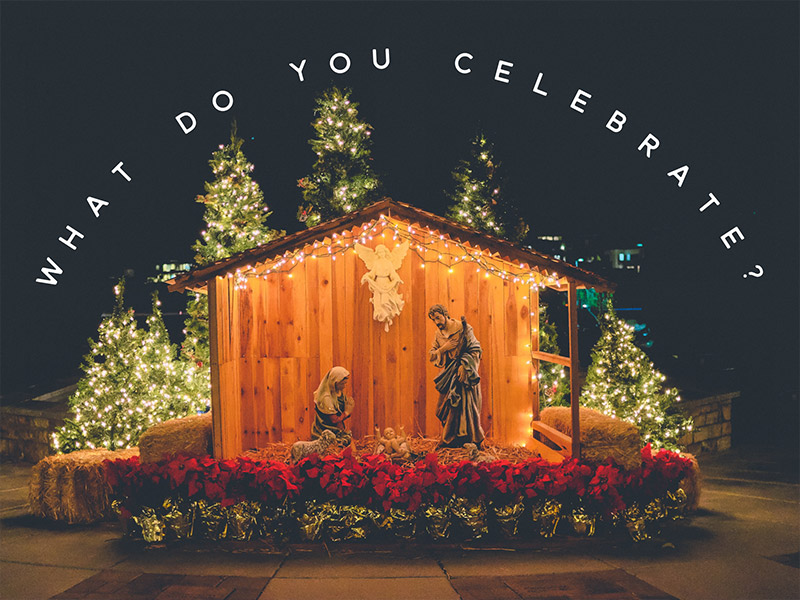What Do You Celebrate?

One of my favorite questions to ask people this time of year is if they have any family traditions to celebrate the holidays. One person I talked to said their family hides a green ceramic pickle on the Christmas tree and the first person to find it gets a prize. Another said they always cook prime rib on New Year’s Day. In our family, we have an Advent Box that holds a little gift, a small piece of candy, or a family activity each December morning until Christmas. I’m sure you have your own as well; possibly ones that you inherited from your extended family, or ones that you created or adapted for your family as it formed and grew.
These little traditions and ways of celebrating are a big part of our lives and help define who we are as a family. In fact, while definitions of ‘culture’ vary somewhat from expert to expert, they nearly always include a nod to the traditions of celebration that a particular people employ. It is a major part of what sets them apart and makes them who they are. Indeed, most cultural celebrations have, at their core, the intentional goal of reminding the people of something that must not be lost. So here is the question for us as leaders: what does our church celebrate?
If our celebrations help define us, and if celebration serves to steward our identity and purpose, what are our church’s celebrations saying about who we are and why we exist? To be clear, I’m not talking about how we engage with holidays like Christmas, Thanksgiving, the 4th of July, or Memorial Day. I’m talking about the things in the life of the church that receive special attention or grant social rewards. For instance, I know of a church that used to light a candle and put it at the front of the church if someone came to know Jesus that week. Another church had one service each year that was led entirely by those under the age of eighteen. In both of these cases, the church viewed these things with anticipation and it created a real sense of what was important (lost people and youth, respectively).
As we reflect on all the traditions of celebration that we’ll encounter over these next few weeks, perhaps we could ask the Lord to help us to reflect on what we’re celebrating in the churches we lead. Every church has these celebrations, even if they’re unplanned and unintentional. May the Lord give us eyes to see them. And perhaps it’s possible that He wants to lead us to refine, adapt, or add a new celebration that helps keep us centered around the core of who we have been made to be and what we have been made to do. My prayer for us is that we get serious about celebrating because there’s nothing better than living our identity and purpose with the One who made it all possible!
Together with you,
Chris
[email protected] or (406) 647-2764
